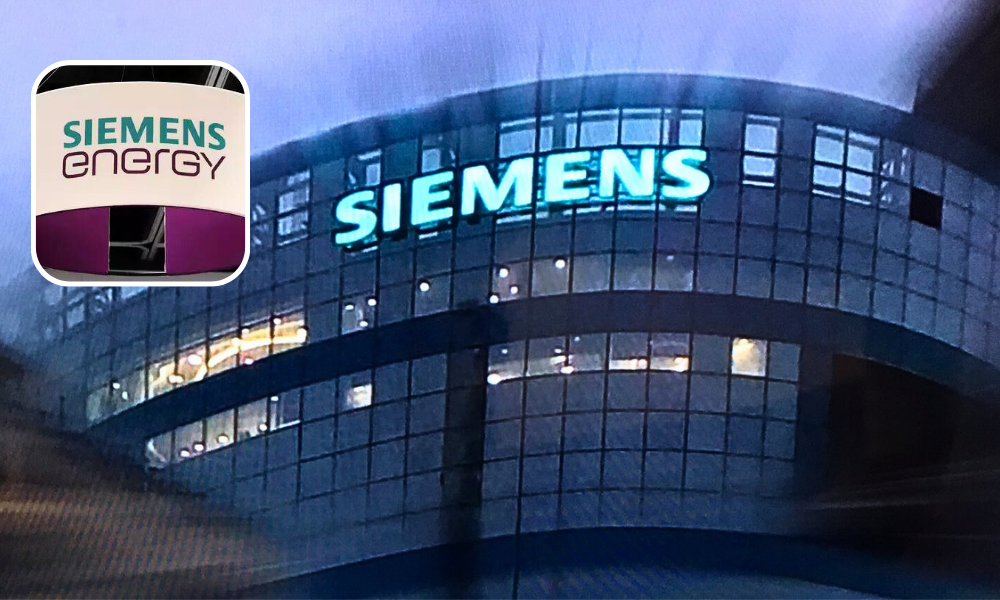
"Simplification of corporate setup in one of the fastest growing and strategically important markets," said the German multinational technology conglomerate, in the announcement.
Siemens has agreed with Siemens Energy indirect financial measures totaling one billion euro to allow third parties to arrange guarantees for Siemens Energy
"Siemens AG has taken measures to support the stability of Siemens Energy AG and accelerate separation in India – in the best possible interests of all parties," said the company.
Siemens intends to enter into a share purchase agreement with Siemens Energy to acquire an 18% stake in Siemens Ltd. India from Siemens Energy for a purchase price of 2.1 billion euro in cash. This would increase Siemens’ stake in the publicly listed Siemens Ltd. India from existing 51% to 69%, while Siemens Energy’s stake would decrease from 24% to 6%.
With the proposed acquisition, Siemens and Siemens Energy accelerate unbundling the business activities of the Indian subsidiary of Siemens. The purchase price reflects a customary discount of 15% on the 5-trading-days volume-weighted average price before the day of signing. Siemens will provide no new guarantees to Siemens Energy.
“Together, we shaped a solution that is in the best possible interests of all parties and accelerates the separation of Siemens and Siemens Energy in India. Besides the immediate cash inflow, we are also enabling an additional line for customer guarantees, making a strong overall contribution to the future stability and growth of Siemens Energy,” said Roland Busch, President and Chief Executive Officer of Siemens AG.
“For our shareholders, the accelerated demerger of Siemens Ltd. India’s energy activities will further sharpen the portfolio focus of Siemens. It also simplifies and strengthens our corporate structure in India, a fast-growing and strategically important market.”
Proposal to initiate demerger procedures in India
As part of the spin-off in 2020, Siemens and Siemens Energy did not separate their businesses in India as it was not feasible at that time. As a next step, Siemens and Siemens Energy have agreed to propose to the Board of Directors of Siemens Ltd. India a demerger of the energy business. Siemens Energy is to ultimately acquire a controlling stake in the demerged energy business. The aim is to complete the demerger in 2025 – significantly earlier than previously planned.Measures to facilitate Siemens Energy customer guarantees
Siemens has agreed with Siemens Energy indirect financial measures totaling one billion euro to allow third parties to arrange guarantees for Siemens Energy. Firstly, Siemens allows Siemens Energy to use its 5% shareholding in Siemens Ltd. India, worth 750 million euro, as collateral for guarantees. If the collateral is drawn, Siemens has committed to buy up to 5% of shares in Siemens Ltd. India for 750 million euro. Secondly, Siemens grants payment deferrals at market conditions in the amount of 250 million euro, also to be used as collateral for guarantees. These commitments enable Siemens Energy to provide appropriate collateral for the bank consortium providing a guarantee line. This line serves to secure Siemens Energy's business development and participation in the German energy transition.Siemens Energy was created as an independent company in April 2020 as a result of a renewed restructuring of the Siemens Group. Siemens transferred its energy division to the new independent company for this purpose.
Last month, Siemens share price dropped sharply, by 39%, in German market after the company announced it was seeking German government guarantees, following quality problems with rotor blades and gears in its newer onshore wind turbines.








 IndianWeb2.com is an independent digital media platform for business, entrepreneurship, science, technology, startups, gadgets and climate change news & reviews.
IndianWeb2.com is an independent digital media platform for business, entrepreneurship, science, technology, startups, gadgets and climate change news & reviews.
No comments
Post a Comment